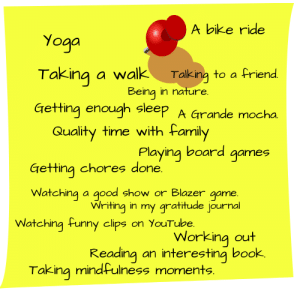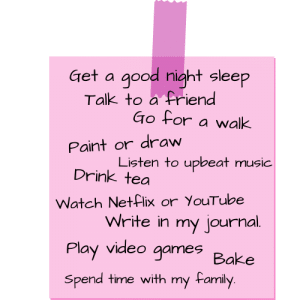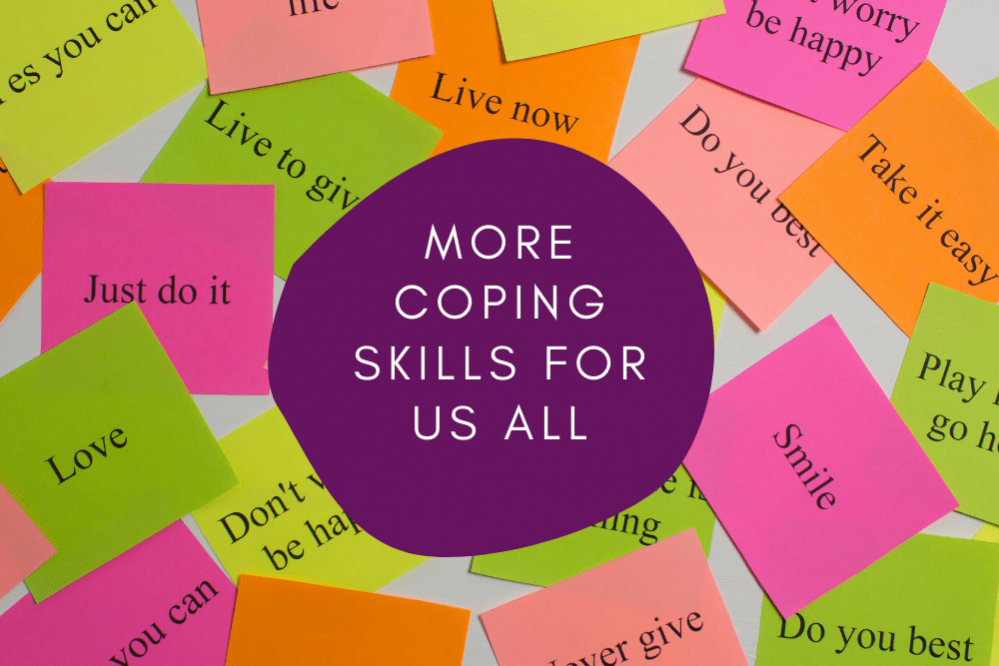Well, after more than a year of this pandemic, there is some light at the end of the tunnel. We have a little ways to go but it’s important to stay optimistic. Sometimes, for some of us (me), that’s daunting and my positivity gives way to worry and anxiety. I was thinking about the in flight oxygen mask as a parent metaphor recently.
Sometimes I feel like I’m on a flight in a cabin that’s losing pressure.
Scenario 1:
My kids are next to me. Our masks are dropped and dangling in front of us. We can hardly breath. Advice be damned, kids come first right? So, I struggle to put their masks on. They’re not holding still, and I’m losing energy and focus. I’m fumbling. Soon, we’re all passed out, our masks left behind.
Scenario 2:
I follow the instructions I’ve heard a million times. I put my mask on first. It feels a bit counterintuitive because I’m way more worried about my kids than myself as they’re screaming and crying. But now I’m breathing and less panic stricken. They pick up on this and it helps them settle a bit. I’m helping them get their masks on. While they’re freaking out, I’m firm and steady. All three masks are on. We’re breathing better and more settled. The plane adjusts and we land safely.
A lot of parenting our kids effectively (setting appropriate boundaries, connecting, listening, being playful), has less to do with our skill set and more to do with our emotional state at any given moment. When we’re regulated, our judgment, patience and capacity for connection improve. When our nervous systems are overly taxed, I can tell you from experience, it doesn’t matter how skilled or “good” of a parent you think you are, you will not be helpful to your kids.
What’s your 10?
We will continue to live with open ended uncertainty. Anxiety hates uncertainty and will do everything in its power to remove it by asserting control. Rigid or black-and-white thinking are examples of this.
This pandemic may not have caused anxiety or depression in us, but it certainly has exacerbated what was already there. One of the most important ways to help yourself and your kiddo is to boost your coping skills by identifying at least 10 things that help you get calm. Sounds simple but for a lot of teens and some adults, once we get past our favorite two or three, we run out of ideas quickly. If your teen can’t name 10, turn this in to a goal for the week.
Below are two lists. The one on the left is mine, the one on the right is from a 15 year-old. Ask everyone in your family to come up with their own and share them together. Notice how it feels just saying them out loud with one another.
Pro tip: They’re called coping skills for a reason. Try to be proactive and avoid waiting for a crisis. The more you use them, the more helpful they’ll be. Getting calm and settling our nervous system really does take practice and time.


The most common objection you may get is “Nothing works.” When someone says that, what they often mean is they don’t want to feel bad anymore. They took deep breaths or went for a walk, and they still felt the same way. Coping skills don’t keep us from feeling sad, angry, anxiety, or pain; they help us recover and bounce back quicker while reducing the intensity of the experience. This takes time, practice, and getting better at having the self-awareness to know what we need at any given moment. Hang in there. You’re doing better than you think!



